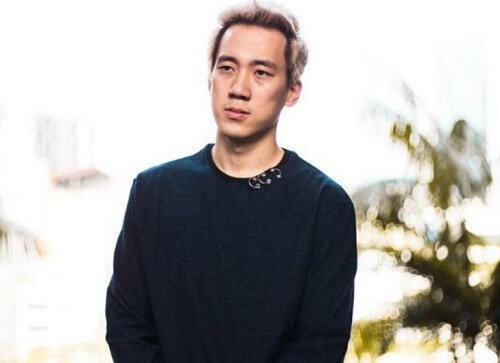In this article, here is the full details of Joe Gebbia about wiki, biography, date of birth, birthplace, zodiac sign, nationality, hometown, age, height, weight, father, mother, family, girlfriend, wife, relationship status, children, profession, education, career, net worth, facts, Wikipedia, and many more.

Joe Gebbia is an American designer, entrepreneur, and co-founder of Airbnb, a company that transformed the hospitality industry by pioneering the home-sharing economy. Born on August 21, 1981, in Atlanta, Georgia, Gebbia’s journey from a young designer with an entrepreneurial spirit to one of the most influential tech entrepreneurs highlights his creativity, persistence, and innovative thinking. His work with Airbnb has had a profound impact on the way people travel and experience accommodation worldwide.
Early Life and Education
Joe Gebbia grew up in a suburb of Atlanta, Georgia, where his natural curiosity and creativity were evident from a young age. Raised in a family that valued hard work and imagination, he was encouraged to explore his interests. His entrepreneurial streak was apparent early on; he sold drawings to neighbors and once created a snow cone business in his neighborhood, foreshadowing his future in innovative business ventures.
Gebbia pursued his passion for design by attending the Rhode Island School of Design (RISD), one of the leading art and design institutions in the United States. At RISD, he studied Industrial Design and cultivated skills in problem-solving and creativity. It was here that Gebbia met Brian Chesky, who would later become his co-founder at Airbnb. The two bonded over their shared love of design and their mutual interest in creating products that could have a real-world impact. After graduating in 2005, Gebbia moved to San Francisco to work as a designer but continued to look for entrepreneurial opportunities.
The Founding of Airbnb
The idea for Airbnb came out of a practical problem Gebbia faced in 2007. He and Chesky, struggling to pay their San Francisco apartment’s rent, realized they could earn money by renting out air mattresses in their living room to attendees of a design conference when local hotels were fully booked. They called this venture “Air Bed & Breakfast” and offered an affordable, alternative lodging experience complete with breakfast. This initial success led Gebbia, Chesky, and a third co-founder, Nathan Blecharczyk, to explore the idea further.
Despite the potential they saw, Airbnb’s early days were challenging. Gebbia and his co-founders faced resistance from investors who were skeptical of the idea of strangers staying in each other’s homes. However, Gebbia’s persistence, design expertise, and understanding of customer experience helped drive the company forward. During a financially challenging period, they famously sold custom-designed cereal boxes, “Obama O’s” and “Cap’n McCain’s,” during the 2008 U.S. presidential election, generating $30,000 to keep the business afloat.
Growth and Global Expansion of Airbnb
Airbnb’s breakthrough came when the company was accepted into Y Combinator, a prominent startup accelerator in Silicon Valley. With guidance from mentors and a $20,000 investment, Airbnb began to refine its business model, expand its platform, and attract a growing user base. Gebbia’s background in design played a crucial role in creating a user-friendly experience and building trust within the community. He and his team focused on making the website intuitive and visually appealing, enabling users to easily list their homes and find unique accommodations around the world.
Airbnb’s growth was explosive, and within a few years, it became one of the fastest-growing companies in Silicon Valley. The platform expanded beyond air mattresses to include entire homes, apartments, and a range of unique accommodations such as castles, yurts, and treehouses. By 2011, Airbnb had hosted over 1 million bookings, and by 2015, it was valued at over $25 billion. The platform’s global reach and diverse offerings revolutionized the travel industry, and Airbnb’s success was largely due to Gebbia’s emphasis on design thinking, trust, and community-building.
Design Thinking and User Experience
As Airbnb’s Chief Product Officer, Gebbia played a crucial role in shaping the company’s design and user experience, applying principles of design thinking to solve complex challenges and meet users’ needs. He emphasized building trust between hosts and guests, a fundamental issue for a platform that encourages people to stay in strangers’ homes. The company introduced verification processes, reviews, and other trust-building features to ensure safe, positive experiences for both hosts and guests.
Gebbia’s commitment to design thinking also extended to Airbnb’s brand identity, which he helped reimagine in 2014 with the introduction of the Bélo symbol, representing a sense of belonging and community. This rebranding effort was meant to reinforce Airbnb’s mission to make people feel at home wherever they traveled, and it resonated strongly with users worldwide.
Philanthropy and Social Impact
As Airbnb grew, Gebbia became increasingly focused on using the platform to make a positive social impact. He helped launch Airbnb’s Open Homes initiative, which allows hosts to offer free lodging to people in need, such as those displaced by natural disasters or refugees fleeing conflict. This initiative was part of Airbnb’s broader commitment to “belong anywhere” and underscored Gebbia’s belief in the company’s potential to foster social good.
In 2020, Gebbia pledged $25 million to initiatives supporting homeless populations and refugees. He has been vocal about his commitment to giving back and using Airbnb’s resources to support communities in need, demonstrating his dedication to philanthropy.
Later Career and New Ventures
In 2022, Gebbia stepped down from his full-time role at Airbnb to pursue new ventures but remained on the board of directors to continue guiding the company. His departure marked the end of an era for Airbnb, but Gebbia continued to explore other interests, particularly in the areas of social entrepreneurship and design.
One of his new ventures was his investment in and collaboration with the sustainable furniture company, Samara. This startup, which he co-founded, focuses on designing sustainable, modular living spaces that address housing and urbanization challenges, reflecting Gebbia’s interest in using design to solve critical global issues.
Legacy and Impact
Joe Gebbia’s influence extends beyond Airbnb’s global success. His commitment to design thinking and user experience has become a model for countless startups, illustrating the importance of empathy and creativity in product development. His work helped reshape the travel and hospitality industries, and his emphasis on trust and community-building has influenced how people perceive sharing economies today.
Gebbia’s legacy is defined by his ability to innovate, adapt, and prioritize human connection in technology. By addressing complex social issues, he has shown that businesses can be both profitable and socially responsible. His philanthropic efforts, from refugee support to homelessness initiatives, underline his belief in the power of design and business to create meaningful change.
Joe Gebbia’s journey from a design student to a pioneering entrepreneur reflects a deep commitment to creativity, community, and impact. His contributions to Airbnb and beyond have left a lasting mark on the world, embodying a vision of business as a force for good and an instrument for reimagining the way people live, work, and connect globally.
Stay connected with the wikimavani to know more about other trending personalities the wiki, biography, date of birth, birthplace, zodiac sign, nationality, hometown, age, height, weight, father, mother, family, boyfriend, husband, girlfriend, wife, relationship status, children, profession, education, career, net worth, facts, Wikipedia, and many more.










